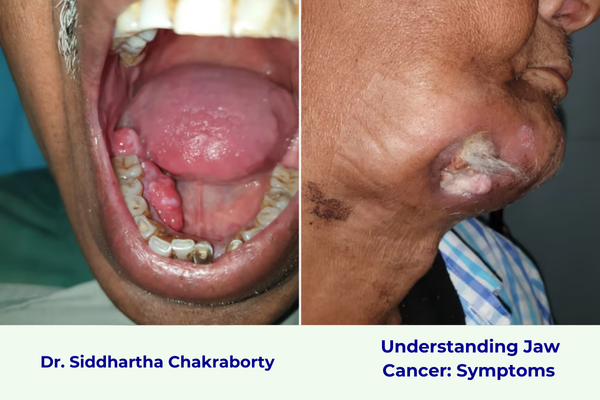Understanding Jaw Cancer
Symptoms pertaining to jaw cancer
1/1/20251 min read


Understanding Jaw Cancer: Symptoms to Watch Out For
Jaw cancer, though relatively rare, is a serious condition that requires early detection for effective treatment. This type of cancer typically originates in the jawbone or the surrounding soft tissues and may stem from other oral cancers spreading to the jaw. Recognizing the symptoms early is crucial to improving outcomes.
Common Symptoms of Jaw Cancer
Persistent Pain or Swelling
One of the most common symptoms of jaw cancer is chronic pain or swelling in the jaw, which may worsen over time. This discomfort might be mistaken for dental issues, delaying diagnosis.Unexplained Numbness or Tingling
A loss of sensation in the jaw, face, or lips could indicate nerve involvement, often seen in jaw cancer cases.Difficulty Chewing or Swallowing
Jaw cancer can make routine activities like chewing, swallowing, or even opening your mouth difficult. These symptoms often develop gradually and worsen with time.Visible Changes in Jaw Shape
Jaw cancer can cause visible deformities or lumps that may be felt or seen around the jawbone. These changes should prompt immediate medical evaluation.Loose Teeth or Denture Issues
Loose teeth without a clear cause, or dentures that no longer fit properly, could signal jawbone deterioration caused by cancer.Non-Healing Sores or Ulcers
Open sores or ulcers in the mouth or jaw region that don’t heal within a few weeks should be evaluated by a healthcare professional.
Early detection of jaw cancer can significantly improve treatment outcomes. If you notice any of these symptoms persisting for more than two weeks, consult me promptly. Diagnostic imaging and biopsies are key to determining the cause and planning treatment.